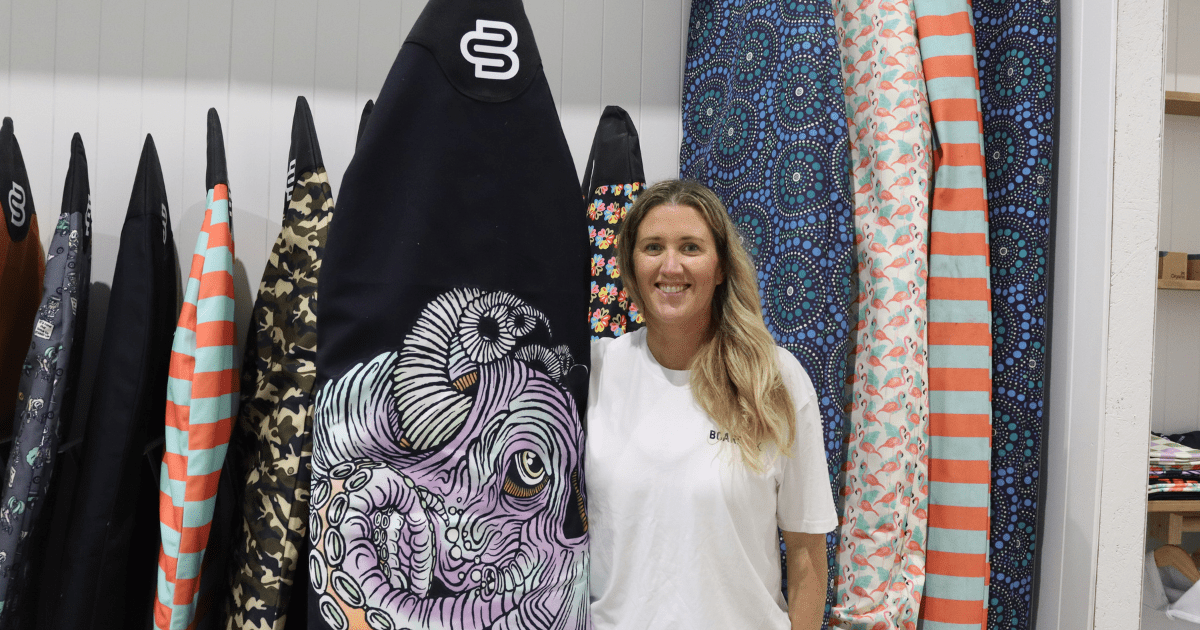Graeme’s gift of time
Graeme Stockton has spent his life working towards one goal – bettering the hand nature’s been dealt.
Volunteering thousands of hours to conservation outfits including Surf Coast Energy Group (SCEG), Surfers Appreciating the Natural Environment (SANE) and Jan Juc Coast Action (JJCA), Graeme’s knowledge of his surrounds is as impressive as it is profound.
His slog on the region’s coastlines began in the late ‘90s soon after he bought property in Bellbrae, the address he still calls home.
“I’ve got a business called West Coast Indigenous Nursery which I started in 1988, and I did that principally because I’m interested in trying to give nature a better deal,” he said.
“I came back from Guatemala after three years and saw all the forests burning down in 1998, which was at that time the highest global temperatures we’ve experienced in modern times.
“I did a degree in horticulture, and I came out and I thought ‘No one else is trying to reconstruct ecosystems and I’ve got some knowledge around horticulture now, I should do it’.”
Graeme was part of the movement to persuade the Surf Coast Shire council to declare a climate emergency last year, having garnered thousands of signatures on an online petition of his making.
His insights on the contentious subject prove Mother Earth needs as many friends like Graeme as she can find if the planet is to withstand what some scientists say is coming.
“I got great help from people like Alex Marshall. Alex delivered some very powerful speeches at council meetings and was also a very good public speaker, so I think all those things allowed us to get that over the line.
“The thing about the climate emergency now is that it’s offering us a chance…to get strong outcomes for all of us on issues that matter.
“We don’t understand the power of community, and if we can develop models that speak to that whole issue of sustainability and resilience and equity, then that will be the perfect model for other communities to follow.”

Having been involved with SCEG since its inception in 2008, Graeme said the group has been working in partnership with the Post Carbon Institute on a program called “Think Resilience”.
The 22-chapter lecture series explores how communities can build resilience in the face of the international climate challenge, a change model Graeme believes the Surf Coast is well-positioned to deliver.
“The course is based around the whole notion that a community is a really important instrument in these uncertain times to do certain things in response to the complex planetary, emergency issues that we’re now facing.
“The COVID-19 outbreak is almost a proxy for climate change. What’s going to happen when the climate emergency really winds up? There are a whole range of issues that we’re going to face in this 21st century and we need to look at how we’re going to respond to them at a community level.
“A really important question to ask is ‘If you were challenged with the sustainability of Torquay, Jan Juc and Bellbrae, what would you do and what would it look like?’ Just asking that question poses a whole lot of possibilities.”
One of Graeme’s favourite projects is the expansive revegetation across the Jan Juc clifftops, an initiative which was recently commemorated with the creation of four before and after signs along the Surf Coast Walk.
He said the message JJCA wanted to convey through the collaborative undertaking was that “people are sharing space with nature”.
“What we’re doing it for is to improve nature’s lot, and that can come out in tangible ways.
“The rufous bristlebird distribution has expanded significantly since we first started work on the cliffs, and it’s a nationally threatened species, but that’s not the only one.
“There’s the swamp antechinus that’s moved back into our coastal heathlands and there was a hiatus there for some 20 years. They’re tangible benchmarks that we can point to and say ‘Okay, the habitat here is now useful and its integrity is good enough to support these species’’.”
Jan Juc Coast Action volunteer Luke Hynes said without Graeme’s technical expertise, the project would not have achieved the same outcomes.
“He’s a pretty amazing guy. He’s really passionate about conservation but his technical skills with regards to plants and animals, more so plants, is really what’s made the project so successful,” he said.
“Without those skills about what to plant and where, and what species to remove, the vegetation wouldn’t be nearly as amazing as what it is now.”
Luke said he felt privileged to have spent 15 years getting to know Graeme, a man he described as “super committed”.
“He’s happy to play the long game and knows that conservation doesn’t happen overnight.
“It’s (JJCC) 25 years of constant effort and he’s definitely one of the people that’s there nearly every working bee and committee meeting.
“Graeme is such a busy guy, when he’s not outside doing stuff, he’s often writing letters to politicians or helping out in any way he can. I feel very lucky to have spent some time hanging out with him.”
Graeme said pouring his heart and mind into protecting one small corner of the Earth was not onerous – it was his way of showing thanks to nature for the life it has afforded him.
“Our community has an appetite for looking after nature. I haven’t got plans to put any brakes on. There’s challenges at the moment, but boy, are there some opportunities.”


















